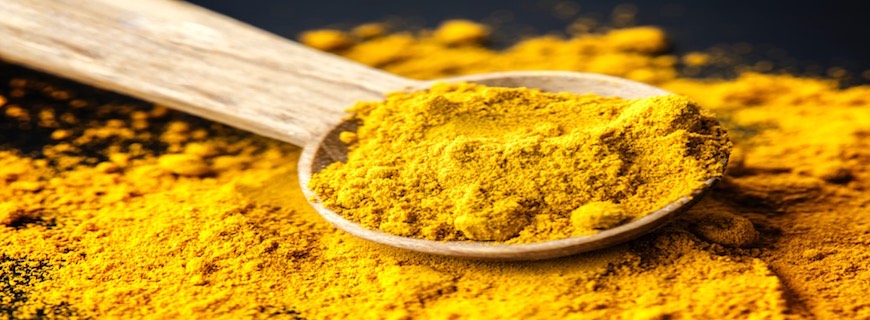The next time you need some pain relief, resist taking conventional painkillers that are loaded with chemicals and other pro-inflammatory ingredients.
Turmeric has been shown to be just as effective at treating pain and inflammation without the nasty side-effects listed on the insert of regular painkillers.
Turmeric may also be able to help ward off chronic illness, improve your mood and expedite recovery from the common cold due to its unique blend of antioxidants.
Best of all, turmeric is backed by science and available in supplement form.
What is Inflammation and How Does It Affect Everyone?
Pain and inflammation go together like peanut butter and jelly. Rarely do you have one without the other. Although some “silent” forms of inflammation may not cause pain immediately, it increases your risk of chronic illness, which may become painful later.
Inflammation is the immune system’s response to a stimulus such as bacteria, a virus or a disease or condition such as an ear infection, irritable bowel disease, bronchitis or cystitis.
There are five common signs of inflammation:
- Pain
- Redness
- Loss of function
- Swelling
- Heat
Inflammation occurs when tissue hormones called histamine and bradykinin force the narrow blood vessels in tissue to swell up and expand, which allows for more blood to reach the injured area.
These hormones can also irritate nerves and send pain signals to the brain. Generally, pain is an underlying symptom of a worse condition that may or may not need medical treatment.
Chances are if you are experiencing pain, you may also have inflammation in the body. If left untreated, chronic inflammation can worsen and develop into a chronic illness.
Turmeric as a Painkiller Alternative
Turmeric is the Indian herb with many healthful properties. One of the most promising is its ability to reduce pain better than some conventional painkillers.
That’s a big deal, especially since Ibuprofen-like painkillers have been linked to an increased risk of heart failure and may cause severe stomach ulceration and bleeding. Not to mention millions of Brits are addicted to painkillers just to make it through their daily lives.
According to a 2014 study, the amount of painkiller prescriptions for patients without cancer increased seven-fold between the years 2000 and 2010.
Turmeric provides a safe alternative for those in pain. According to a 2008 study, the active ingredient in turmeric – known as curcumin – has been shown to inhibit multiple pro-inflammatory pathways similar to that of several different steroids in a safer and more affordable manner.
A 2012 study published in the Indonesian Journal of Internal Medicine, meanwhile, found that turmeric was able to reduce inflammation in patients with osteoporosis equally as well as many NSAIDs.
A similar study published in the Journal of Alternative and Complimentary Medicine in 2010 found that turmeric was able to reduce inflammation equally as well as Ibuprofen in patients with knee osteoarthritis.
What’s more, researchers established that turmeric was safe and did not cause side effects.
A 2019 study conducted by Mississippi State University, meanwhile, showed that turmeric supplements “may reduce muscle damage and soreness without impacting the natural inflammatory response.” The study in question involved males aged 18-39, who took a turmeric supplement every day for 28 days.
Turmeric has many other benefits that conventional painkillers just don’t have. Besides relieving pain and inflammation, it has been shown to improve the following conditions:
- Alzheimer’s Disease and neurodegenerative diseases
- Irritable Bowel Disease
- Cardiovascular disease
- Diabetes
- Allergies, asthma and bronchitis
- Arthritis and inflammation conditions
- Psoriasis
What to Look for When Supplementing With Turmeric
The best way to cash in on the many benefits of turmeric is to take it in supplement form. But not all supplements are created equally.
Your turmeric supplement is only as good as your body’s ability to absorb it, so be sure to choose one that contains as few binders and filling agents as possible, to make it easier on the digestive system.
Conclusion
Hopefully this article has demonstrated that there are several natural pain management alternatives to pharmaceutical drugs.
The inflammation-fighting turmeric isn’t the only one, truth be told: many use magnesium for muscle pain and arthritis pain. Anti-inflammatory omega-3s, such as those in oily fish, also help, while ingredients including lavender and chilli peppers can be applied to areas of soreness, such is the unique compounds they contain.
The important thing to remember is that chronic pain could be an underlying symptom of a condition which may or may not need require medical treatment. By all means, use turmeric to remedy the pain but speak to your doctor if it persists.
Water for Health Ltd began trading in 2007 with the goal of positively affecting the lives of many. We still retain that mission because we believe that proper hydration and nutrition can make a massive difference to people’s health and quality of life. Click here to find out more.




























Leave a comment